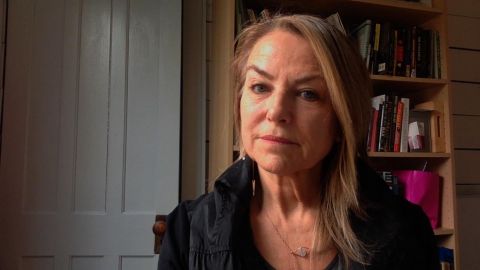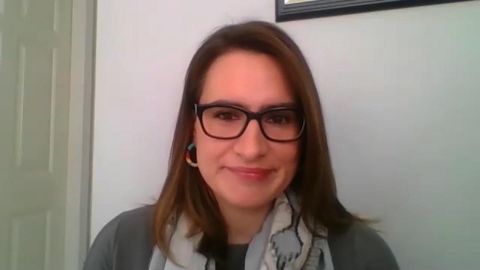Read Transcript EXPAND
ESTHER PEREL, PSYCHOTHERAPIST: So, look, one of the first things that people describe is how there is a complete amalgamation of all of our roles in the one place. I’m sitting on the same chair the whole day in the same day and then, from that place, I am a therapist, I am a mother, I am a partner, I am a friend, I am — you know, all the roles are bleeding into each other. All the weekend is same as the weekday. And there is this loss of demarcation and delineation. Usually our roles are taking place in certain locals. We change for them. We go to different places for them. Now, it is all in one spot. And that disruption is more than just a disruption of our routines and our sense of continuity, it’s a disruption of every ritual of our life. And so, the first thing I say to people is, find ways to create borders. Don’t eat at the same time if you can or change the table, change the look. If you want to have dinner with your partner and it’s just the two of you and can’t have a date, dress up, pretend you’re going out. Children are our guides in this moment. They are able to continue to understand that freedom in confinement comes through our imagination. They are talking to dragons. They are talking to kings. They are talking to imaginary people all the time. We need to access our imagination because that’s the one place where we are currently not confined. We are maybe physically confined but we can still create an environment around us. So, creating delineations is one thing that is going to go a long way. Finding some kind of structure within the chaos is suddenly being experienced. Not trying to pretend that we are just working from home, as I heard you say, but we are working with home.
At the same time, as we’re working, the only borders that’s left for some of us is the mute button. You know, behind us is a whole cast of characters sometimes and a whole life taking place that we are trying to ignore while we try to be professional here. We are working with home and that means that we are working with the fears of others and we are working with the sleepless nights of others and we’re working with the stress levels of others and we need to find ways to regulate all of that. Put headphones on if you can on occasion. Listen to music that makes you feel good and brings joy to you. Take walks. Take walks alone on occasion. Just move because we are so static in this moment that our entire sense of trauma and dread is contracting in our body and there is this undercurrent of dread going on, which is not always named. Sadness, fear, helplessness, despair, powerlessness, anger. Those are the emotions and it comes with gratitude and hope and courage. They are there, too. And the more we name them, the less we react to them and the more we are able to actually articulate them and connect with the people around us. This is the real-time for mass mutual reliance.
About This Episode EXPAND
Christiane speaks with the Managing Director of the International Monetary Fund Kristalina Georgieva; psychotherapist Esther Perel; and composer Andrew Lloyd Webber. Michel Martin speaks with Minnesota Lt. Gov. Peggy Flanagan.
LEARN MORE



